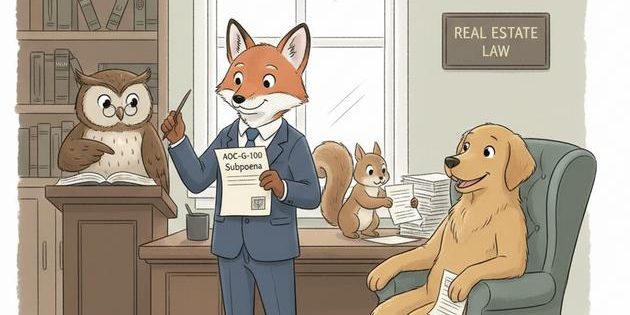Is there a deadline or fee to amend a subpoena in a quiet title action? – North Carolina
Short Answer
In North Carolina, there is no specific deadline to amend an unserved subpoena and no separate court filing fee to correct it. If the subpoena has not been issued or served, complete a corrected subpoena and have it issued or signed, then serve it properly. You may owe service charges (for sheriff service) and, if you command attendance, statutory witness fees and mileage.
Understanding the Problem
You’re in a North Carolina Superior Court quiet title case and need to fix a subpoena because the court designation box was left unchecked. Can you amend it, is there a deadline, and will you owe a fee?
Apply the Law
Subpoenas in North Carolina civil cases are governed by the Rules of Civil Procedure and are issued in the county where the case is pending. A subpoena is typically issued by the Clerk of Superior Court or signed by an attorney as an officer of the court. If a subpoena hasn’t been served, the cleanest fix is to prepare and issue a corrected subpoena and then serve it. Courts do not charge a separate filing fee to amend or reissue a subpoena in a pending case; costs arise from service and any witness fees.
Key Requirements
- Proper issuance: Use the correct form, include the proper court division, caption, and case number, and have it issued by the clerk or signed by an attorney.
- Reasonable time to comply: Set a compliance date that gives the recipient a reasonable amount of time; tight deadlines risk objections or quashal.
- Correct service: Serve the subpoena by a permitted method and in the proper county; keep proof of service.
- No separate filing fee: There’s no court fee just to correct or reissue the subpoena; expect sheriff service charges and potential witness fees.
- If already served: Issue and serve an amended subpoena and provide prompt notice canceling the original to avoid confusion.
What the Statutes Say
- Rule 45 (Subpoenas) – Sets who may issue subpoenas, required contents, service, compliance, and objections.
- G.S. 7A-311 (Sheriff service fees) – Lists fees the sheriff may charge to serve civil process, including subpoenas.
- G.S. 7A-314 (Witness fees and mileage) – Establishes the per-day witness fee and mileage that may apply when attendance is required.
Analysis
Apply the Rule to the Facts: Because your subpoena hasn’t been issued or served, there’s no statutory amendment deadline and no need to file a motion to amend. Prepare a corrected subpoena that clearly designates the court division for your Superior Court quiet title case, have it issued by the clerk or signed by your attorney, and serve it. You won’t owe a court fee just to fix it, but plan for service costs and, if you command attendance, the statutory witness fee and mileage.
Process & Timing
- Who files: The party issuing the subpoena (through counsel) or the Clerk of Superior Court. Where: Clerk of Superior Court in the county where the quiet title case is pending. What: Complete a corrected subpoena (AOC-G-100, Subpoena) with the proper court division and case caption. When: Before any service; allow reasonable time for the recipient to comply.
- Have the clerk issue the subpoena or have your attorney sign it as an officer of the court, then serve it by an authorized method. If using the sheriff, expect standard service fees and build in time for delivery.
- If the original had been served, issue and serve an amended subpoena, notify all parties as required, and cancel the original to avoid conflicting commands. The expected outcome is a valid, properly served subpoena with a realistic compliance date.
Exceptions & Pitfalls
- Leaving the court division or case number incomplete can invalidate service; use the current AOC form and double-check the caption.
- Serving a subpoena with too little time to comply invites objections or a motion to quash.
- Failure to follow Rule 45 notice and service requirements, including providing notice to other parties when required, can result in delay.
- If commanding attendance, confirm and handle statutory witness fee and mileage requirements to avoid compliance issues.
Conclusion
In a North Carolina quiet title case, there is no specific deadline or separate court fee to amend an unserved subpoena. The practical fix is to prepare a corrected subpoena that lists the proper Superior Court division and case details, have it issued or signed, and serve it with reasonable time for compliance. Your next step: complete and submit a corrected AOC-G-100 Subpoena to the Clerk of Superior Court and arrange proper service.
Talk to a Real Estate Attorney
If you’re dealing with a subpoena issue in a North Carolina quiet title case, our firm has experienced attorneys who can help you understand your options and timelines. Call us today at [919-341-7055].
Disclaimer: This article provides general information about North Carolina law based on the single question stated above. It is not legal advice for your specific situation and does not create an attorney-client relationship. Laws, procedures, and local practice can change and may vary by county. If you have a deadline, act promptly and speak with a licensed North Carolina attorney.


